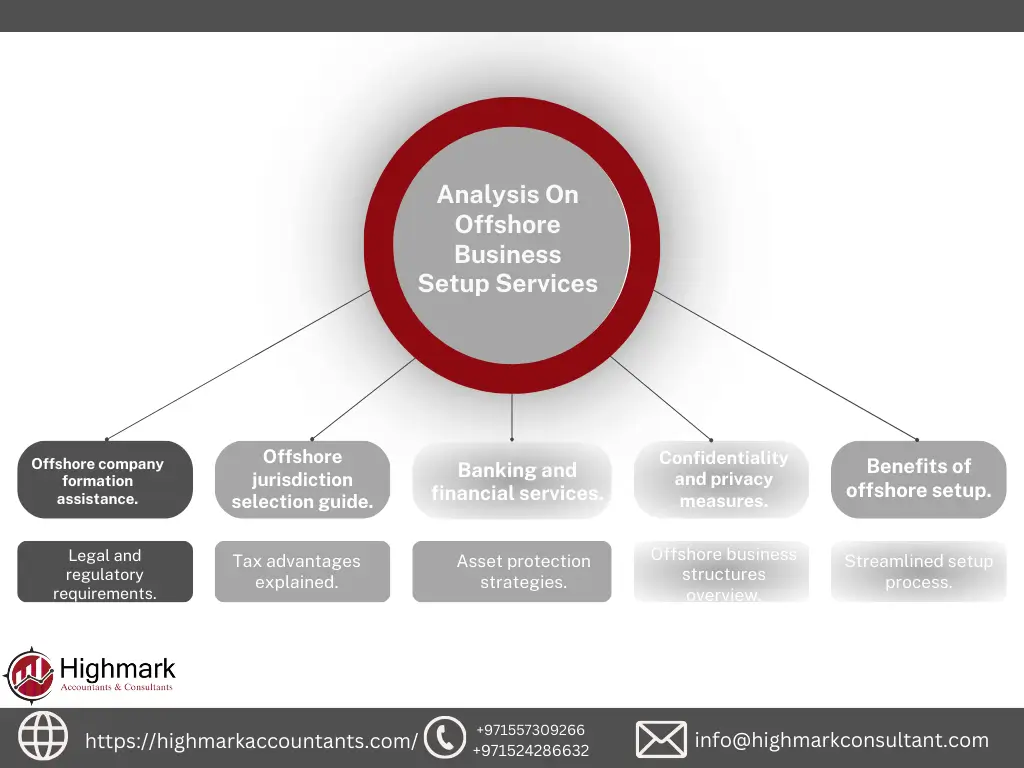Debunking Offshore Business Formations: Exactly How They Run and What to Anticipate
Offshore firm formations can seem facility and enigmatic. Offshore Company Formations. These entities, usually established for tax advantages and privacy, run under unique legal frameworks. Business owners may locate themselves navigating via a maze of guidelines and compliance needs. Comprehending the ins and outs is important for success. What are the actual advantages? What are the prospective challenges? A closer evaluation exposes the subtleties that could affect decision-making substantially
Recognizing Offshore Business: Types and meanings
Offshore companies are entities established in a territory beyond a person's or business's primary country of home, often for purposes connected to tax obligation optimization, property defense, or regulatory advantages. These business can take different types, consisting of minimal obligation firms (LLCs), global organization companies (IBCs), and offshore counts on. Each type offers specific functions and attract different needs.
Limited obligation companies offer owners with protection from personal obligation, while worldwide service companies are popular for their adaptability and marginal coverage demands. Offshore trust funds, on the various other hand, are made use of largely for estate preparation and property security.
The option of jurisdiction considerably influences the company's procedures, as some areas provide much more beneficial legal structures and personal privacy securities. Offshore Company Formations. Comprehending the differences in between these types is vital for organizations and individuals thinking about offshore frameworks, as each choice carries various ramifications for governance and conformity
The Advantages of Establishing an Offshore Firm
Establishing an offshore firm can offer many benefits, specifically for those looking for to enhance their monetary techniques and protect their properties. One considerable advantage is tax optimization; many territories provide desirable tax obligation rates or exceptions, allowing businesses to maintain more profits. Additionally, offshore companies can supply a layer of privacy, securing the identities of owners and investors from public scrutiny.
An additional advantage is possession protection. By positioning assets in an overseas entity, individuals can secure their wide range from potential legal cases or political instability in their home countries. This structure additionally helps with global company procedures, enabling much easier accessibility to worldwide markets and varied customers.
Additionally, the facility of an overseas company can improve integrity and status, attracting clients who value worldwide organization methods. On the whole, these benefits make offshore company formations an appealing choice for people and services aiming for financial development and safety and security.
Secret Considerations Before Developing an Offshore Entity
Before forming an offshore entity, several important variables need to be examined. Lawful conformity requirements, tax implications and benefits, as well as territory option, play a substantial duty in the decision-making process. Comprehending these factors to consider can assist companies and individuals navigate the intricacies of overseas business formations efficiently.

Lawful Compliance Demands
When taking into consideration the formation of an overseas entity, understanding legal compliance needs is important to assure adherence to both local and worldwide laws. Prospective local business owner should familiarize themselves with regulations regulating company enrollment, reporting responsibilities, and functional criteria in the selected jurisdiction. This consists of verifying the legal needs for directors and shareholders, in addition to making certain compliance with anti-money laundering (AML) and know-your-customer (KYC) guidelines. Furthermore, organizations ought to stay knowledgeable about any licensing requirements certain to their sector. Involving local lawful and monetary specialists can offer valuable insights, making sure that all essential documentation is prepared and submitted correctly. Inevitably, comprehensive understanding of lawful compliance aids mitigate dangers and fosters a lasting offshore procedure.
Tax Obligation Effects and Advantages
Numerous service proprietors consider the tax effects and advantages of developing an overseas entity as a critical element in their decision-making process. Offshore companies can provide considerable tax obligation advantages, such as minimized corporate tax prices, exemption from particular regional taxes, and the capacity to defer taxes on international earnings. These advantages can result in boosted success and capital, making overseas frameworks appealing for global organization operations. In addition, the capacity for tax treaties may further lessen tax obligation responsibilities. It is vital for company proprietors to understand the complexities involved, including conformity with both global and local official site tax obligation regulations. Engaging with tax obligation professionals is recommended to navigate these complexities efficiently and guarantee ideal tax preparation strategies.
Jurisdiction Selection Aspects
What factors should one think about when choosing a territory for overseas company formation? Trick factors to consider consist of tax obligation performance, regulatory atmosphere, and political stability. Jurisdictions with positive tax obligation regimes can considerably influence productivity. The regulatory landscape must offer flexibility and ease of compliance, permitting effective service procedures. Political security is essential, as it assures the safety and security of properties and connection of procedures. In addition, the reputation of the jurisdiction can affect client trust and business relationships. Accessibility to banking services and the accessibility of expert support services are also vital. Understanding neighborhood legislations concerning coverage, privacy, and ownership needs is necessary to establish that the offshore entity straightens with the company proprietor's goals and lawful responsibilities.
The Refine of Setting Up an Offshore Business
Setting up an overseas company includes a series of critical steps that need cautious preparation and compliance with global policies. A private have to pick a suitable jurisdiction that lines up with their organization objectives and uses desirable tax obligation advantages. Complying with territory option, the next step is to select a distinct firm name and prepare the necessary paperwork, consisting of write-ups of incorporation and shareholder contracts.
Once the paperwork prepares, it has to be sent to the relevant authorities along with the needed charges. After approval, the business will get a certification of unification, formally establishing its legal existence. The individual should then open a business savings account to help with monetary transactions.
Keeping an overseas business includes sticking to continuous compliance requirements, such as annual coverage and tax responsibilities, which vary by jurisdiction. For that reason, comprehending each step is necessary for an effective overseas firm development.
Legal and Regulatory Framework for Offshore Firms
While developing an overseas company can supply substantial benefits, it is important to steer with the complicated legal and governing framework that governs such entities. Each territory has its own collection of laws that determine whatever from company development to taxation and conformity requirements. These laws are made to stop illegal tasks, such as money laundering and tax obligation evasion, and frequently call for complete documents and transparency.
Trick aspects of this structure include the requirement of appointing regional directors, keeping a registered workplace, and sticking to annual coverage commitments. In addition, lots of territories impose certain licensing needs for certain service tasks. Understanding these lawful specifications is crucial for making sure conformity and mitigating dangers related to charges or lawful disagreements. Involving with lawful specialists that specialize in offshore companies can aid in maneuvering through this complex landscape, eventually helping with a compliant and successful offshore organization operation.
Usual Mistaken Beliefs Concerning Offshore Firms
Lots of people hold false impressions about offshore firms, frequently corresponding them with tax evasion and prohibited tasks. It is essential to recognize that these entities can run legitimately within a structure created for reputable organization techniques. Clearing up the lawful condition of offshore firms can aid eliminate these misconceptions and advertise a much more accurate understanding of their objective.
Tax Obligation Evasion Myths
Despite the expanding appeal of offshore firms, misconceptions regarding description their usage for tax obligation evasion continue. Numerous people incorrectly believe that developing an offshore entity is solely a method to avoid tax obligations. Nevertheless, offshore firms are usually used for legitimate functions, such as asset defense, worldwide organization growth, and investment diversity. The assumption that all offshore activities relate to illegal tax obligation evasion overlooks the intricacies of international tax laws and compliance demands. In addition, the large bulk of overseas jurisdictions have implemented steps to battle tax evasion, promoting openness and details exchange. This mischaracterization can deter legit companies and financiers from discovering the potential benefits of offshore business formations while bolstering an adverse stigma surrounding these entities.
Legal Condition Clarified
The lawful standing of overseas companies is typically misconstrued, leading to a variety of false impressions. Many believe these entities operate in a legal gray area, presuming they are inherently unlawful or dishonest. In truth, offshore companies are legitimate companies developed under the legislations of particular jurisdictions, developed for different reasons, including possession protection and market expansion. Another common mistaken belief is that overseas business avert taxes entirely; nonetheless, they undergo the laws and tax obligation responsibilities of their home countries. Additionally, some people assume that overseas business can be easily exploited for cash laundering or prohibited tasks. While misuse can occur, the majority of territories impose strict compliance and transparency legislations to alleviate such dangers, ensuring that offshore companies operate within lawful structures.
Handling and Running Your Offshore Firm Successfully
Successfully managing and operating an overseas company needs a critical approach that balances compliance with regional guidelines and the search of organization objectives. Effective overseas monitoring entails understanding the jurisdiction's tax laws, reporting requirements, and operational guidelines. Using neighborhood specialists, such as accounting professionals and lawful experts, can give very useful understandings into passing through these complexities.
Additionally, establishing clear interaction networks and functional procedures is crucial for preserving performance. Utilizing technology for task monitoring and partnership can improve productivity, while regular performance evaluates guarantee alignment with strategic purposes.
In addition, keeping durable financial records is vital, as transparency cultivates depend on with stakeholders and abide by international criteria. Being adaptable to adjustments in legislation or market problems allows overseas companies to pivot properly, ensuring lasting sustainability and development. By adhering to these concepts, entrepreneur can maximize the benefits of their overseas ventures while mitigating dangers.
Often Asked Questions
Just how much Does It Cost to Preserve an Offshore Firm Annually?
The expense to keep an offshore company every year varies significantly, typically ranging from $1,000 to $5,000, relying on territory, services needed, and compliance responsibilities. It is important to take into account extra costs for specific requirements.
Can I Open a Checking Account for My Offshore Company From Another Location?
Opening up a savings account for an offshore business from another location is usually feasible. Needs might differ by territory, frequently demanding documents and verification processes, which can complicate the remote application experience for individuals.
Exist Specific Countries Known for Easier Offshore Business Formations?
Certain nations, such as Belize, Seychelles, and the British Virgin Islands, are renowned for their structured procedures and positive policies relating to offshore company developments, bring in entrepreneurs seeking performance and discretion in company procedures.
What Kinds of Businesses Are Finest Suited for Offshore Companies?
Particular organizations, visit our website such as shopping, investment, and consultancy companies, typically take advantage of overseas companies due to tax obligation advantages, privacy, and regulatory versatility - Offshore Company Formations. These entities generally prosper in jurisdictions that advertise beneficial organization atmospheres
Just How Can I Guarantee Conformity With Local Regulations When Running Offshore?
To guarantee compliance with neighborhood laws when running offshore, it is important to involve lawful professionals, conduct thorough research study on territory regulations, and preserve clear financial records, therefore minimizing dangers connected with non-compliance.
